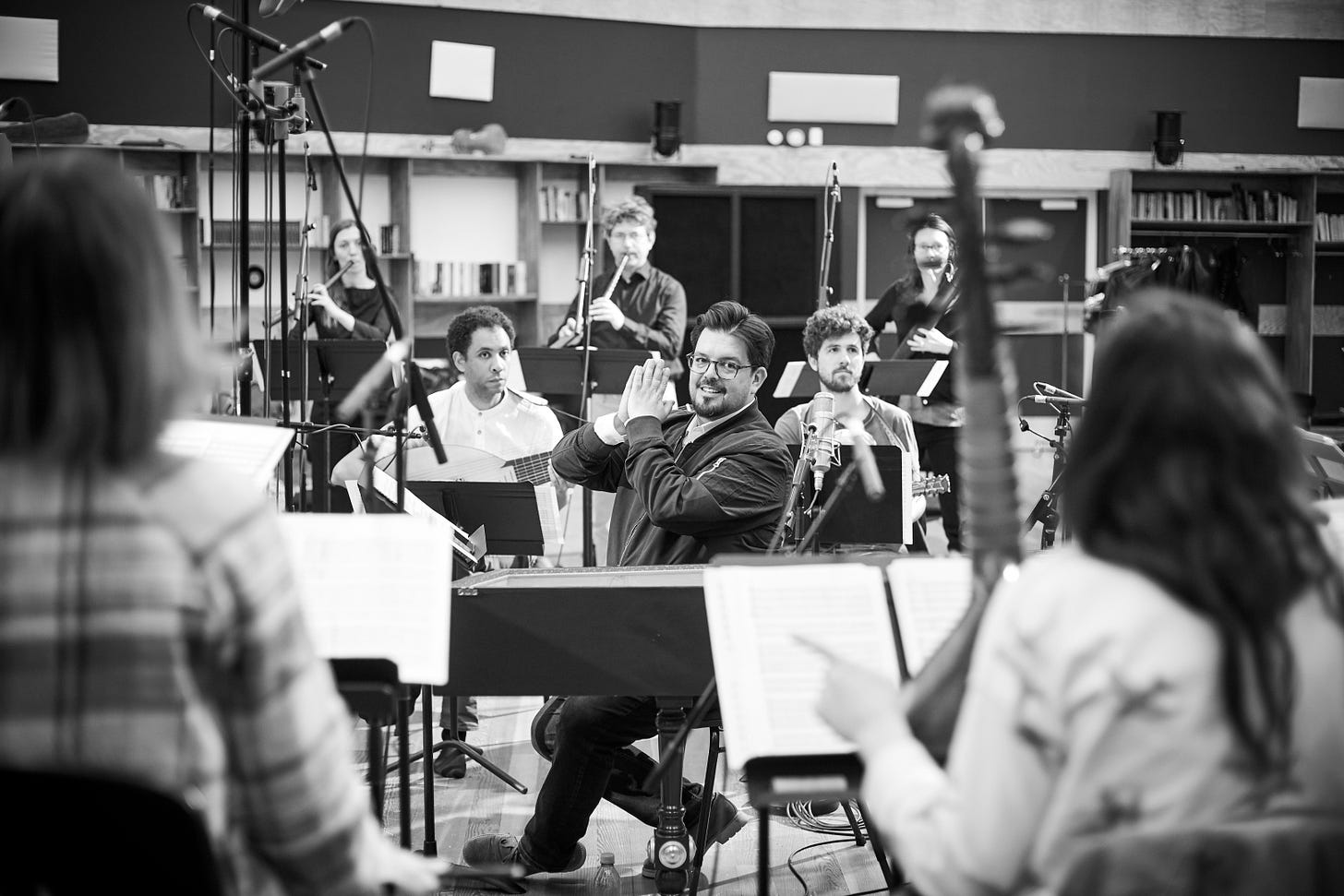Monteverdi: Il ritorno d’Ulisse in patria. Emiliano Gonzalez Toro (Ulisse), Rihab Chaieb (Penelope), Emöke Baráth (Minerva), Zachary Wilder (Telemaco), Philippe Talbot (Eumete), Fulvio Bettini (Iro), Mathilde Etienne (Melanto), Álvaro Zambrano (Eurimaco), Alix Le Saux (Ericlea), Anders J. Dahlin (Pisandro), Anthony León (Anfinomo, Giove), Nicolas Brooymans (Antinoo, Tempo), Jérôme Varnier (Nettuno), Juan Sancho (Mercurio), Lauranne Oliva (Giunone, Fortuna), Philippe Jaroussky (Fragilità Umana), Cristina Fanelli (Amore), Ensemble I Gemelli. Gemelli Factory 3 770031 472011 Physical copy €50 only available direct from gemelli-factory.com/boutique-2
Of the three surviving operas by Monteverdi, Il ritorno d’Ulisse in patria (Ulysses’ Return to his Homeland) has struck me as the most edifying, whatever the claims of the court allegory, Orfeo, and the more frequently staged L’incoronazione di Poppea (The Coronation of Poppea). Five years ago, the husband-wife team of Emiliano Gonzalez Toro and Mathilde Etienne - artistic directors of I Gemelli - released a gripping Orfeo on the Naïve label, with Toro as the titular Thracian lyre-inventor and singer. Now they present, under their own insignia, a new recording of Ulisse in a sumptuous hard-back book, modelled on Jordi Savall’s Hesperion XXI and Le concert des Nations or Palazzetto Bru Zane productions.
The book alone is worth the asking price: it comes in two languages (English/French), with a 15-page interview with Gonzalez Toro and Etienne, followed by 105 pages of fascinating commentary, both scholarly and explanatory, by members of the company. There is also a full libretto, including sections for which Monterverdi’s music has not been found.
On its own terms, the set is a beautiful thing to have and to hold, while listening to a performance that is often revelatory - arguably the most comprehensive Ulisse yet to appear on disc. Indeed it is more than complete since several of the musicians, in addition to making the instrumental arrangements, have recomposed the lost scenes, notably a delightful coro for Nereids and Sirens to introduce Neptune rising out of the briny to dispute Ulisse’s fate with his brother Jove. Ulisse performed come scritto has had its champions in the past, notably Roger Norrington’s skeletal Monteverdi productions for Kent Opera in the early 1970s, but nearly all of the opera’s most prominent champions, from ‘old-school’ Raymond Leppard to supposedly historically informed specialists such as Nikolaus Harnoncourt and René Jacobs, have embellished and tinkered with the composer’s (or composers’) notes. As with vocal ornamentation, these things are primarily a matter of taste, but collectively and individually, I Gemelli’s choices strike me as unusually convincing.
Emiliano Gonzalez Toro (Ulisse) surrounded by the musicians of I Gemelli at a recording session Picture by Gemelli Factory
Just a quick glance down the cast-list reveals a contemporary Who’s Who of cutting edge baroque singers, starting with Gonzalez Toro’s Ulisse. He is an artist of exceptional imagination, as well as technical accomplishment: if this Ulisse is, say, less the star of his show than he was of I Gemelli’s recording of Orfeo (Naïve), that’s partly the way the opera is written (as a court drama to flatter a rich patron), and partly because here he leads a battalion of nine other tenors in featuring roles, all quite distinct of voice and personality. Because I have heard a few baritone Ulisses, this surfeit of tenors had never struck me quite so forcefully before, but Zachary Wilder’s youthful Telemaco, Fulvio Bettini as the tragicomic glutton Iro and Juan Sancho’s Mercurio stand out from the crowd. These voices are so far removed from the Oxbridge College ‘churchiness’ we have become used to in British Monteverdi recordings, they almost come as a shock, but as the operas derive their drama as much from the text as from the music, the performance has a vivid immediacy sometimes lacking in studio recordings. Harnoncourt’s is a case in point: his later ‘remake’, recorded live as the soundtrack to Jean-Pierre Ponnelle’s Baroque Extravaganza film, bristles with the theatricality of a stage presentation.
The female members of the cast are hardly less remarkable, though I have to confess a preference for Jacobs’s Penelope, the peerless Bernarda Fink (she also sang his Orfeo Messagiera and L’incoronazione Ottavia). Rihab Chaieb sings the chaste heroine’s music with beauty and insight into the text, but I miss the plush underlay of Fink’s ripe mezzo. That said, she is eloquent and moving in Penelope’s opening solo with its ear-worm refrain Torna, deh torna, Ulisse (Come back, oh come back, Ulysses), heartrending in the final duet of reconciliation with Toro’s hero. As Minerva, Emöke Baráth’s bright soprano and even brighter persona could hardly be bettered, while Mathilde Etienne’s flighty Melanto is the perfect foil for Chaieb. Alex Le Saux is perhaps too youthful-sounding for Ericlea, the old servant who recognises Ulisse’s birthmark from 20 years before, but her singing is never less than lovely. Jerôme Varnier’s Nettuno has one of those bottomless, full-fathom-five basses, all too rarely heard today, but essential in Monteverdi.
Toro and Etienne have indulged in a bit of luxurious bit-part casting: Philippe Jaroussky’s high counter tenor sings Fragilitá Umana (Human Frailty), a cameo appearance in the Prologue, but this is less star-gazing than a mark of the seriousness with which this project has been taken by its participants. It is the product of three years’ work, and it shows. This collectors’ item should be on every Monteverdian’s Christmas list.






Beautiful & mouth-watering review. Also good to see so many Italians in the mix. They never seem to find their way across the Channel😔
I've seen several productions since then - the Royal Opera did one, and ENO did a new one at the Young Vic not so long ago. Also 2022 at Longborough Opera, and the Grange Festival has done it, though not especially effectively. The ENO production you saw was fantastic.